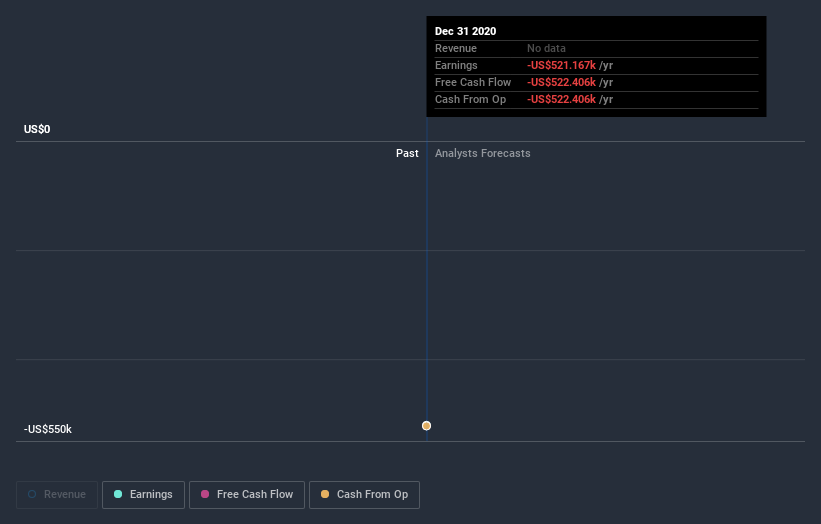A look at the shareholders of Avanti Acquisition Corp. (NYSE:AVAN) can tell us which group is most powerful. Institutions will often hold stock in bigger companies, and we expect to see insiders owning a noticeable percentage of the smaller ones. Companies that have been privatized tend to have low insider ownership.
Avanti Acquisition is not a large company by global standards. It has a market capitalization of US$749m, which means it wouldn't have the attention of many institutional investors. Taking a look at our data on the ownership groups (below), it seems that institutions own shares in the company. We can zoom in on the different ownership groups, to learn more about Avanti Acquisition.

What Does The Institutional Ownership Tell Us About Avanti Acquisition?
Institutional investors commonly compare their own returns to the returns of a commonly followed index. So they generally do consider buying larger companies that are included in the relevant benchmark index.
As you can see, institutional investors have a fair amount of stake in Avanti Acquisition. This implies the analysts working for those institutions have looked at the stock and they like it. But just like anyone else, they could be wrong. It is not uncommon to see a big share price drop if two large institutional investors try to sell out of a stock at the same time. So it is worth checking the past earnings trajectory of Avanti Acquisition, (below). Of course, keep in mind that there are other factors to consider, too.

It would appear that 9.6% of Avanti Acquisition shares are controlled by hedge funds. That worth noting, since hedge funds are often quite active investors, who may try to influence management. Many want to see value creation (and a higher share price) in the short term or medium term. Looking at our data, we can see that the largest shareholder is NNS Group with 20% of shares outstanding. Meanwhile, the second and third largest shareholders, hold 9.6% and 3.7%, of the shares outstanding, respectively.
Looking at the shareholder registry, we can see that 51% of the ownership is controlled by the top 17 shareholders, meaning that no single shareholder has a majority interest in the ownership.
While it makes sense to study institutional ownership data for a company, it also makes sense to study analyst sentiments to know which way the wind is blowing. As far I can tell there isn't analyst coverage of the company, so it is probably flying under the radar.
Insider Ownership Of Avanti Acquisition
The definition of company insiders can be subjective and does vary between jurisdictions. Our data reflects individual insiders, capturing board members at the very least. The company management answer to the board and the latter should represent the interests of shareholders. Notably, sometimes top-level managers are on the board themselves.
I generally consider insider ownership to be a good thing. However, on some occasions it makes it more difficult for other shareholders to hold the board accountable for decisions.
Our most recent data indicates that insiders own less than 1% of Avanti Acquisition Corp.. It seems the board members have no more than US$749k worth of shares in the US$749m company. I generally like to see a board more invested. However it might be worth checking if those insiders have been buying.
General Public Ownership
With a 42% ownership, the general public have some degree of sway over Avanti Acquisition. While this group can't necessarily call the shots, it can certainly have a real influence on how the company is run.
Next Steps:
I find it very interesting to look at who exactly owns a company. But to truly gain insight, we need to consider other information, too. Case in point: We've spotted 1 warning sign for Avanti Acquisition you should be aware of.
Of course this may not be the best stock to buy. Therefore, you may wish to see our free collection of interesting prospects boasting favorable financials.
NB: Figures in this article are calculated using data from the last twelve months, which refer to the 12-month period ending on the last date of the month the financial statement is dated. This may not be consistent with full year annual report figures.
This article by Simply Wall St is general in nature. It does not constitute a recommendation to buy or sell any stock, and does not take account of your objectives, or your financial situation. We aim to bring you long-term focused analysis driven by fundamental data. Note that our analysis may not factor in the latest price-sensitive company announcements or qualitative material. Simply Wall St has no position in any stocks mentioned.
Have feedback on this article? Concerned about the content? Get in touch with us directly. Alternatively, email editorial-team (at) simplywallst.com.
The views and opinions expressed herein are the views and opinions of the author and do not necessarily reflect those of Nasdaq, Inc.




%20%7C%20Nasdaq&_biz_n=3&rnd=635969&cdn_o=a&_biz_z=1743342819334)

%20Shareholder%20Ownership%20Structure%20Looks%20Like%20%7C%20Nasdaq&_biz_n=6&rnd=590249&cdn_o=a&_biz_z=1743342819335)
%20Shareholder%20Ownership%20Structure%20Looks%20Like%20%7C%20Nasdaq&rnd=406802&cdn_o=a&_biz_z=1743342819338)